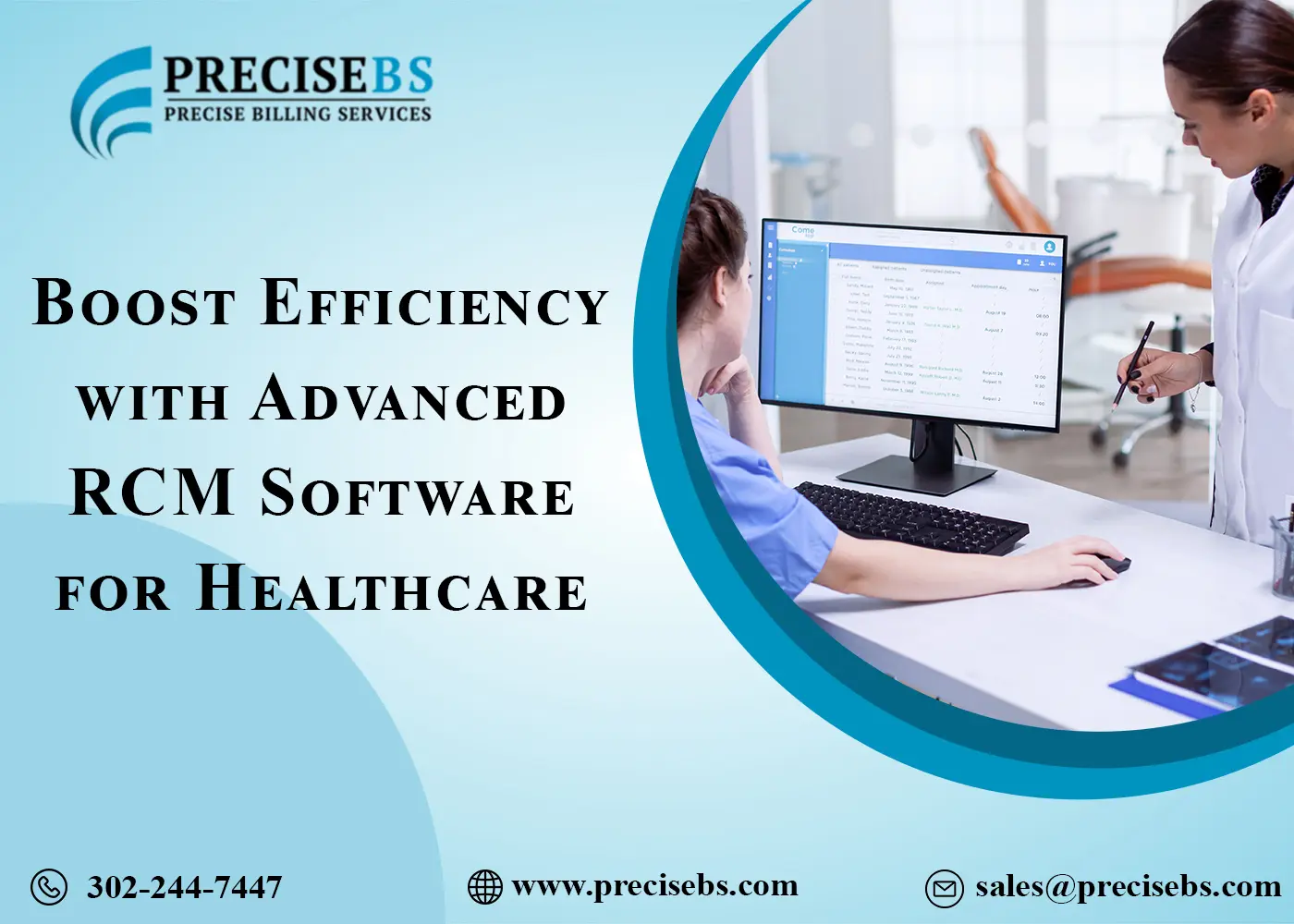Managing revenue cycles efficiently is crucial for healthcare providers, medical billing professionals, revenue cycle managers, hospital administrators, and healthcare IT professionals. With the advent of advanced RCM software, organizations can now streamline their operations, improve financial performance, and enhance patient satisfaction.
What is RCM Software and How Does It Work?
RCM (Revenue Cycle Management) software is a comprehensive solution designed to manage the financial processes associated with patient care, from scheduling appointments to final payment collection. It automates critical tasks such as claims submission, denial management, and patient billing, ensuring accuracy and compliance with healthcare regulations. By integrating with electronic health records (EHR) and practice management software, RCM software enables seamless data flow and improved communication between departments.
Read Also: What is Revenue Cycle Management (RCM)
Key Features of Revenue Cycle Management Software
- Claims Management: Automated submission and tracking of insurance claims.
- Billing Automation Tools: Reduces manual errors and accelerates payment processing.
- Financial Performance Tracking: Provides real-time insights into revenue patterns and cash flow.
- Patient Payment Solutions: Flexible payment plans and secure online payment options.
- Healthcare Compliance Software: Ensures adherence to healthcare regulations and coding standards.
How Can RCM Software Improve Healthcare Billing Efficiency?
- Automated Billing System minimizes human errors and speeds up claims processing.
- Payment Processing Tools enable secure and quick payment collections.
- Real-time Analytics allows revenue cycle managers to identify bottlenecks and improve cash flow.
- Integration with Practice Management Software streamlines appointment scheduling and patient data management.
Benefits of Using Automated RCM Solutions
- Enhanced Accuracy: Reduces billing errors and claim denials.
- Faster Reimbursements: Accelerates the payment cycle.
- Cost Reduction: Minimizes administrative overhead.
- Improved Patient Experience: Offers flexible payment options and reduces billing confusion.
- Compliance Assurance: Ensures adherence to industry regulations and standards.
How Can RCM Software Streamline Your Operations?
- Enhanced Billing Automation: RCM software leverages advanced billing automation tools to eliminate manual errors and reduce claim denials. This not only speeds up the billing process but also improves accuracy and compliance with healthcare regulations.
- Improved Financial Performance Tracking: With robust financial performance tracking features, healthcare revenue management becomes more transparent. This allows revenue cycle managers to monitor key performance indicators (KPIs) and make data-driven decisions.
- Seamless Payment Processing Tools: An automated billing system integrated with payment processing tools simplifies patient payments and reduces outstanding balances. This enhances cash flow and improves patient satisfaction.
- Efficient Practice Management Software Integration: RCM software seamlessly integrates with practice management software, streamlining scheduling, patient records, and insurance verification. This integration boosts operational efficiency and patient care.
- Compliance and Security: Healthcare compliance software embedded in RCM platforms ensures adherence to industry regulations, such as HIPAA. This protects patient data and reduces the risk of legal issues.
Read Also: Why Outsourcing RCM Services is a Smart Move for Healthcare Providers?
Why Healthcare Providers Should Invest in RCM Software
Medical billing solutions powered by advanced RCM platforms are essential for staying competitive in the healthcare industry. By leveraging billing automation tools and healthcare revenue management systems, you can:
- Minimize billing errors
- Accelerate claims processing
- Improve patient satisfaction
- Optimize financial performance
How Do I Choose the Best RCM Software for My Medical Practice?
- Assess Your Needs: Identify specific challenges in your revenue cycle.
- Evaluate Features: Look for automation, compliance, and integration capabilities.
- Check Vendor Reputation: Research customer reviews and testimonials.
- Scalability: Ensure the software can grow with your practice.
- Support and Training: Opt for a provider that offers excellent customer support and training resources.
Conclusion
Incorporating advanced RCM software into your healthcare operations is a game-changer. It streamlines billing processes, enhances financial tracking, and ensures compliance with healthcare regulations. By adopting an automated billing system and integrating practice management software, you can boost efficiency and maximize revenue.
Ready to Transform Your Revenue Cycle?
Don’t wait any longer! Discover how RCM software can revolutionize your healthcare operations today. Contact us for a free demo and take the first step toward streamlined revenue management!
Also Read: Why Your RCM Strategy Requires Data and Analytics


[…] to improve your financial processes and maximize revenue, consider upgrading your RCM system today. Explore how advanced RCM software can help streamline your operations, reduce administrative burden, and ensure timely […]